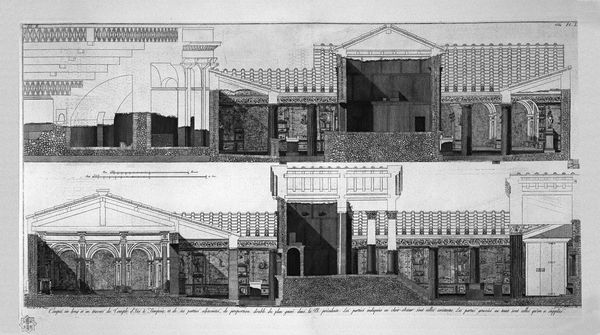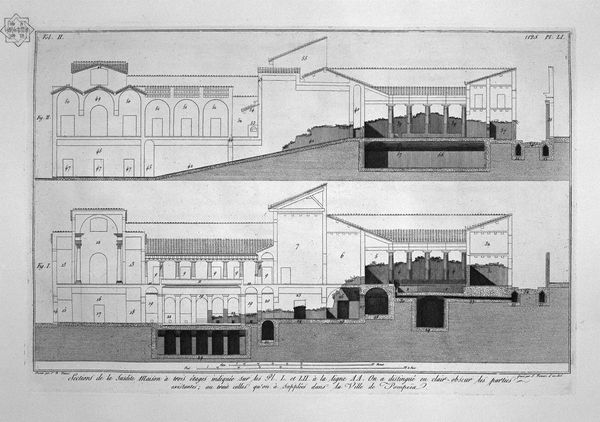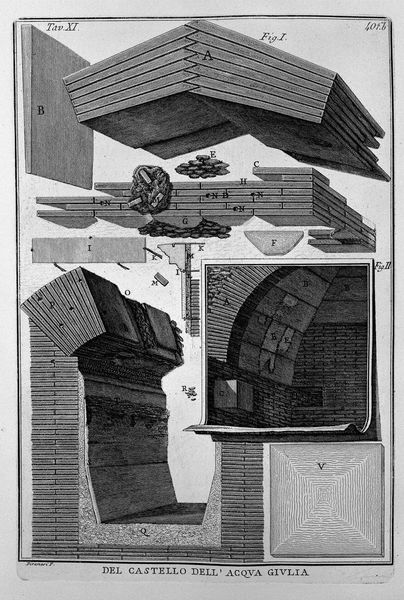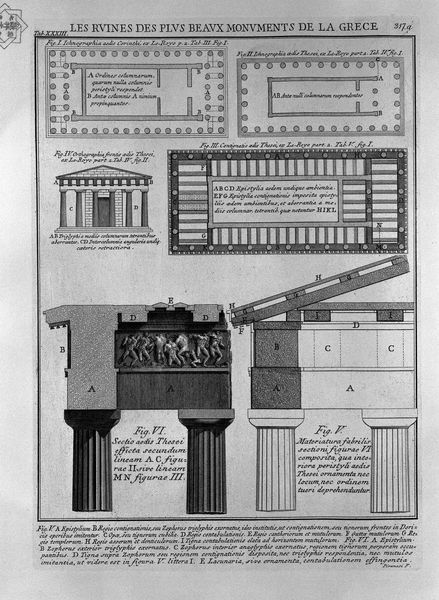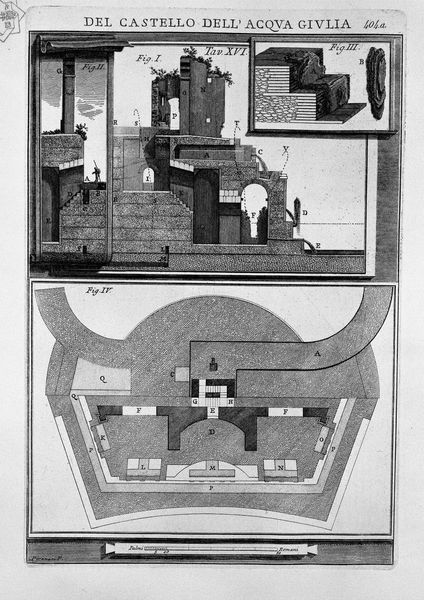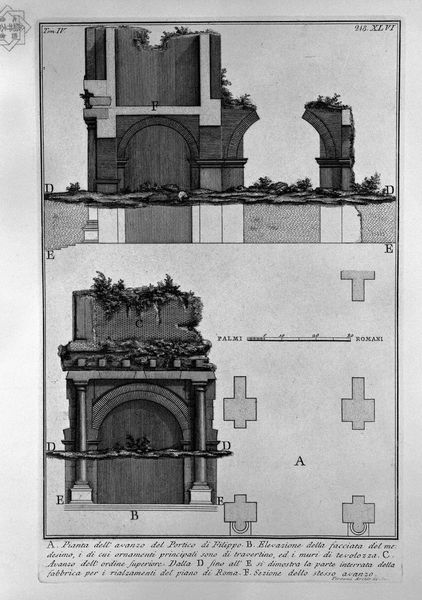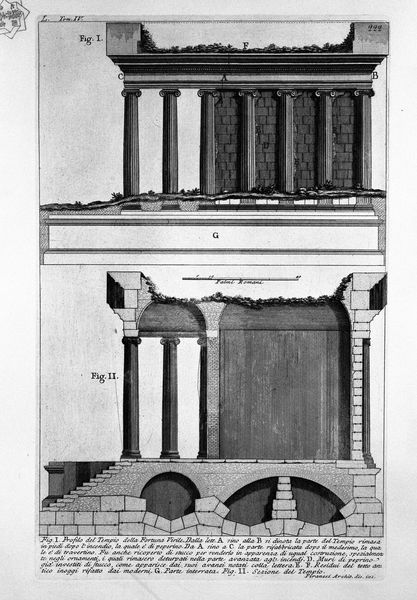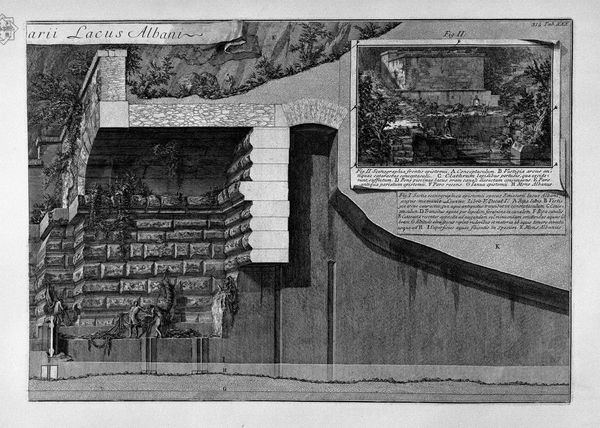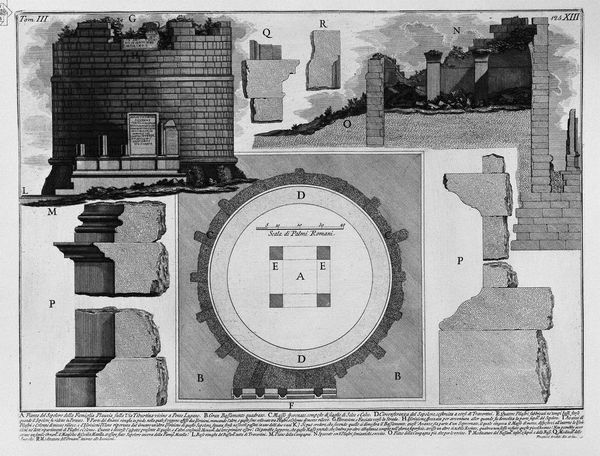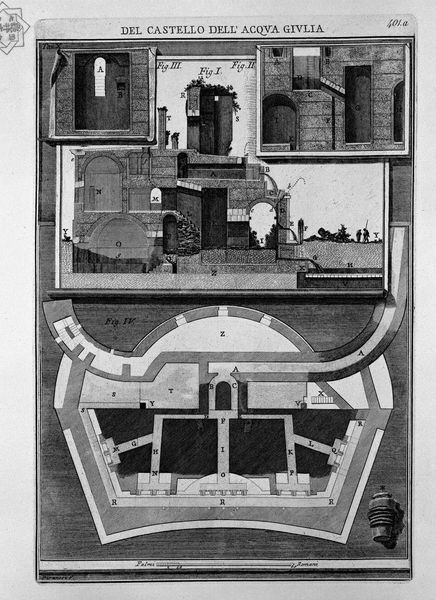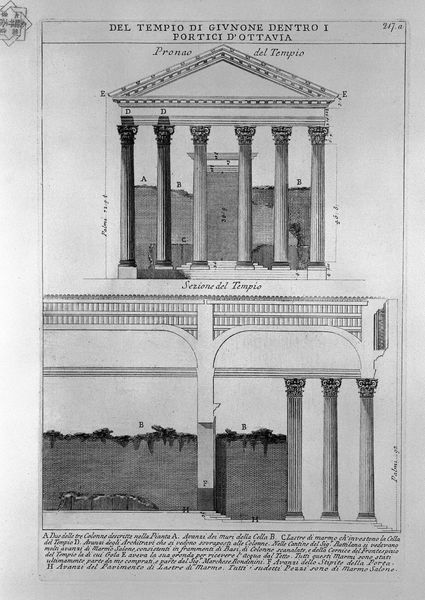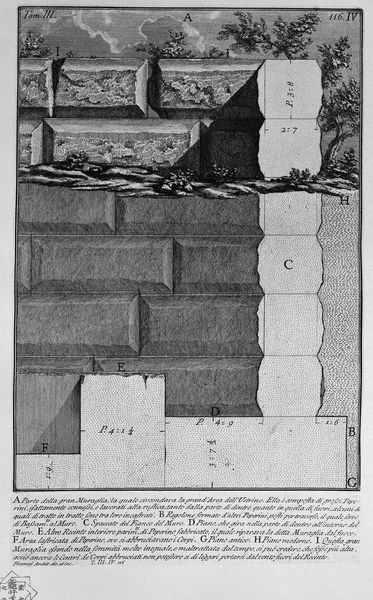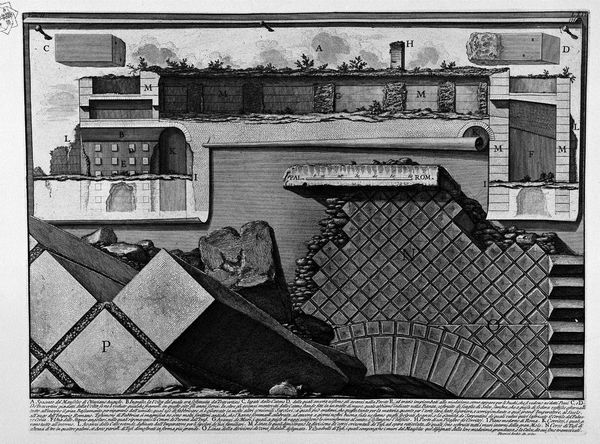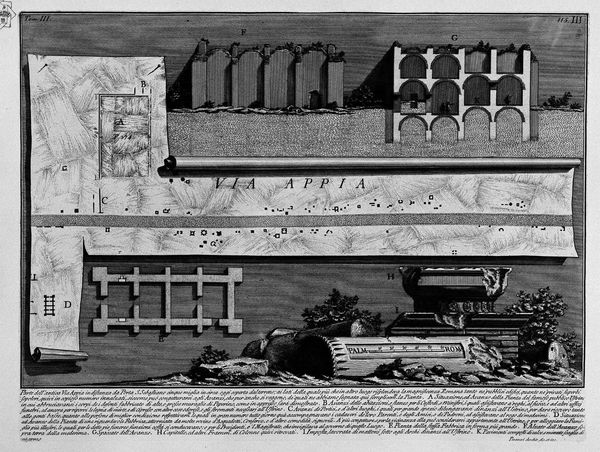
drawing, engraving, architecture
#
architectural sketch
#
drawing
#
building study
#
old engraving style
#
architecture mock-up
#
structure design
#
sketchwork
#
architectural concept
#
ancient-mediterranean
#
arch
#
architecture drawing
#
architectural proposal
#
exterior design
#
engraving
#
architecture
Copyright: Public domain
Giovanni Battista Piranesi created this etching, "The Roman Antiquities, t. 4, Plate XLVIII.", sometime in the 18th century. At first glance, the composition appears as a meticulous arrangement of architectural fragments and plans, rendered in stark black and white. The rigorous detail invites us to contemplate the very structure of Roman antiquity through the formal language of architectural drawing. Piranesi uses line to define form, space, and texture, effectively conveying both the grandeur and decay of Roman architecture. The etching presents a semiotic system where each line, shadow, and annotation functions as a signifier. The meticulous detail challenges fixed notions of time and ruin. Look at the fragmented nature of the ruins, how it destabilizes our understanding of the past, prompting us to construct and reconstruct meaning. Consider how Piranesi employs formalism to engage with broader philosophical concerns about history, perception, and representation. Ultimately, this piece invites ongoing interpretation.
Comments
No comments
Be the first to comment and join the conversation on the ultimate creative platform.
